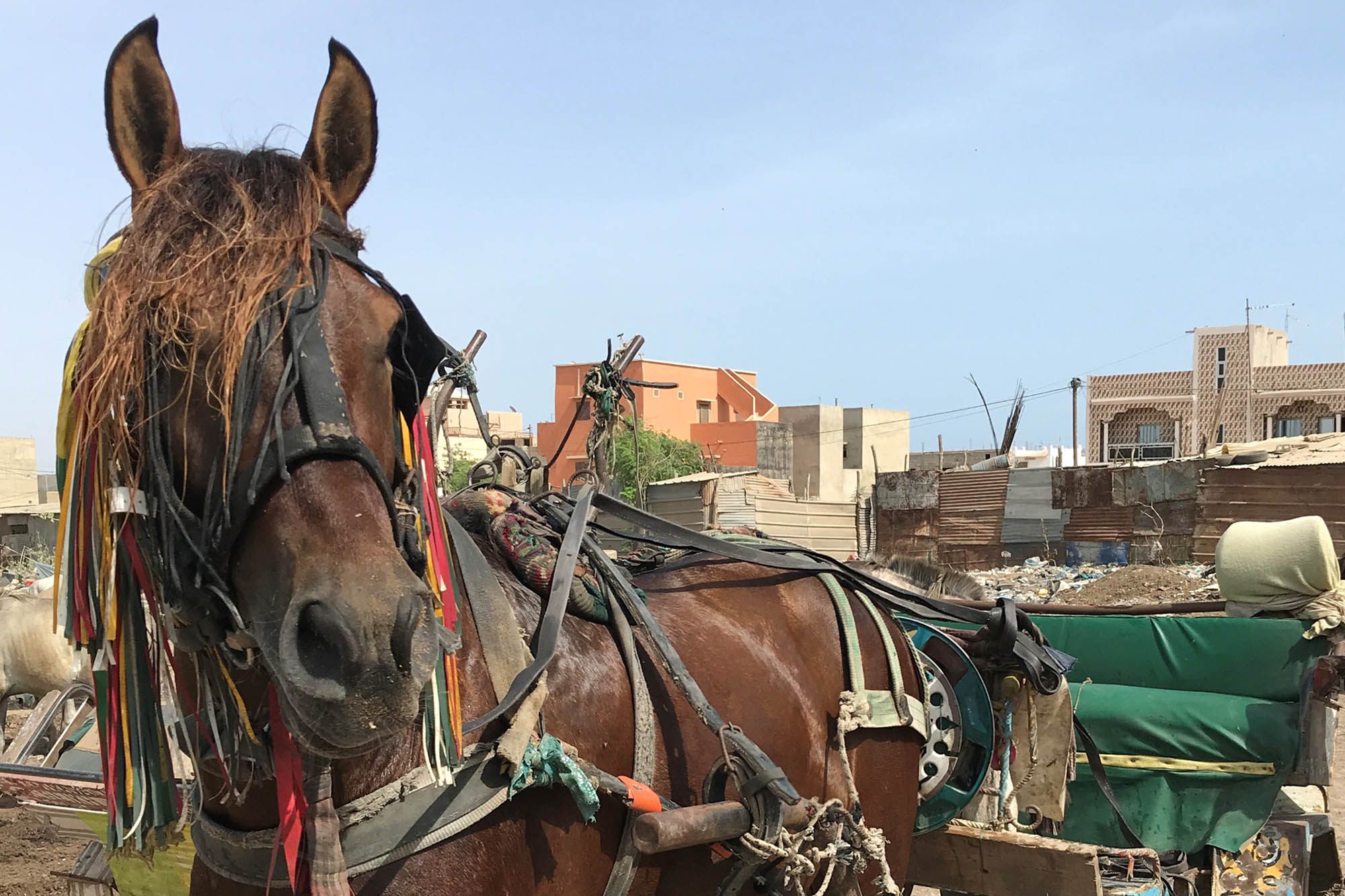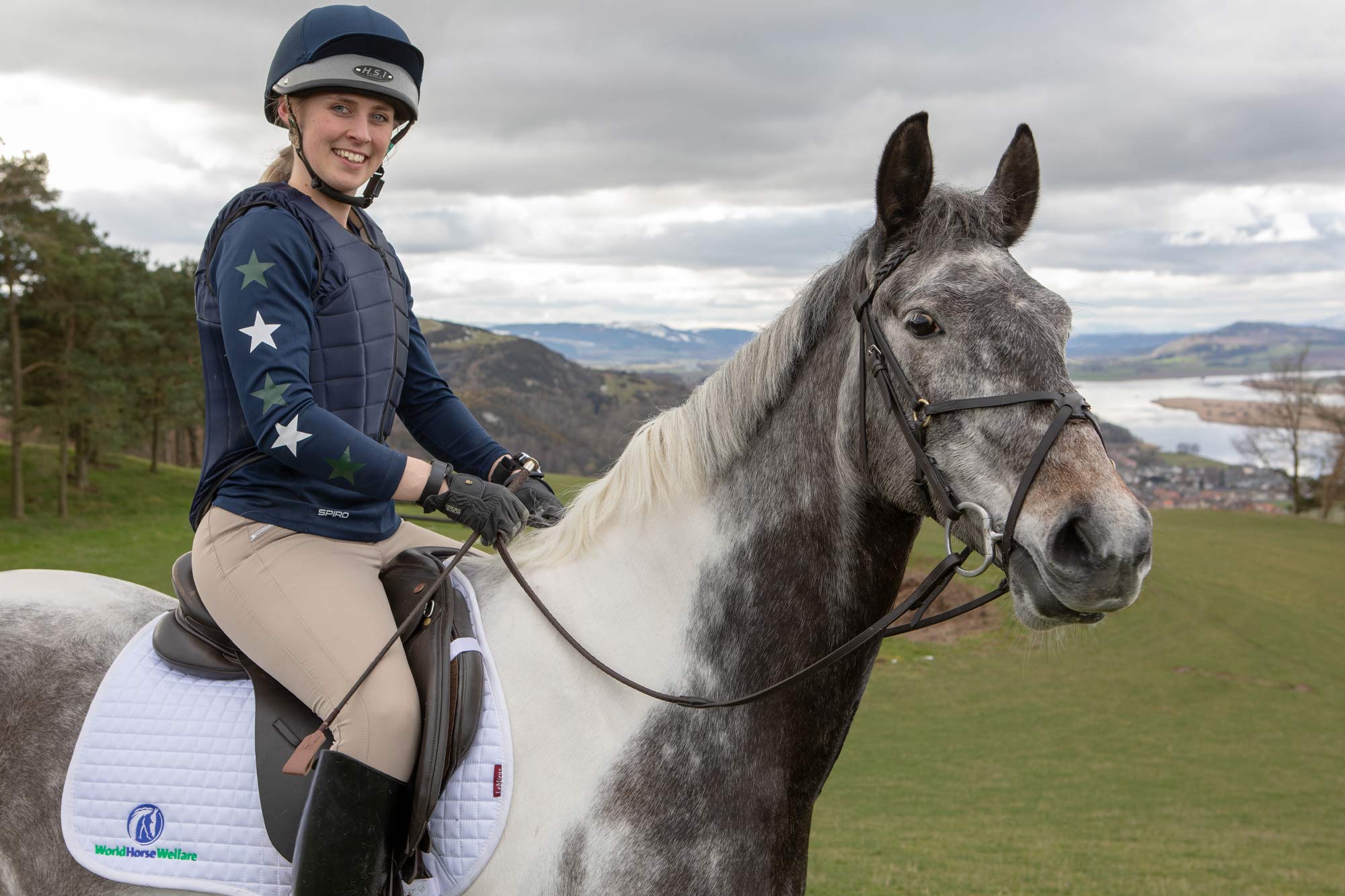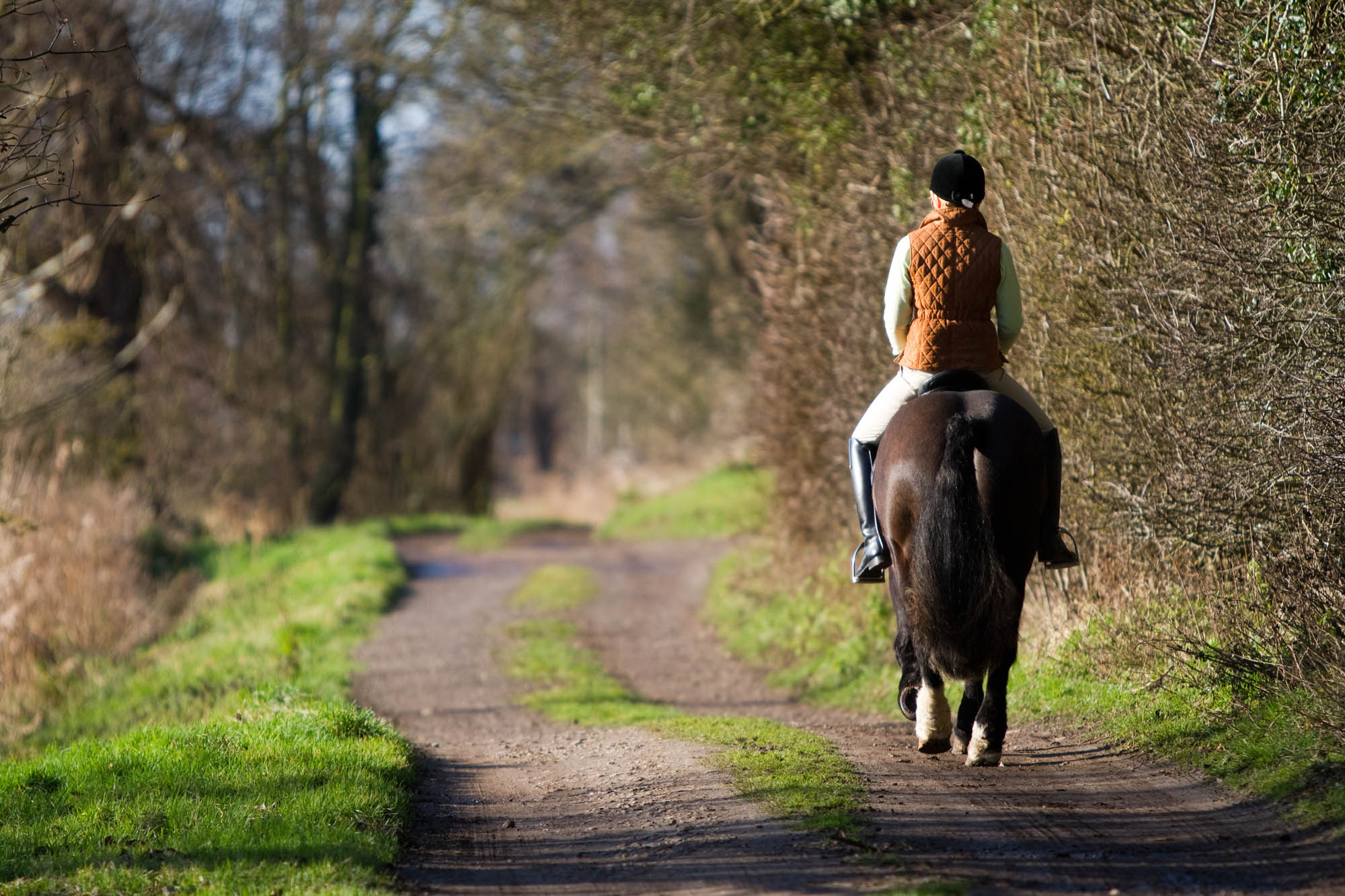Analysing the success of community projects in Senegal
Bursary student Faye Al-Nakeeb takes a look at the impact of our project in Senegal on the welfare of local working equines.
Posted on 07/10/2019

World Horse Welfare has been working with communities in Senegal for four years now and so I proposed a research project to analyse the impact of this on the welfare of local equines. My project would compare the situation in the areas the charity had been working in with that in areas not yet reached.
To collect the data, we used a questionnaire to provide an insight into the daily routine and management of the horse, plus an assessment sheet with a system to score the animal on their demeanour, body condition, lameness, wounds, foot soreness and general welfare.
We visited market places and working sites to witness the owner-horse interaction (feeling a bit like the Horse Police!). We tallied up the number of good and bad welfare situations we saw during 15-minute periods and the results were fascinating.
The study showed an overwhelming difference in the areas around the World Horse Welfare projects. There was a 72% average of good welfare situations in those areas, compared to 7% in other locations.
The questionnaires also revealed that 58% percent of owners who had taken part in one of the charity’s projects were using a trained farrier, compared with only 7% of owners who had not participated. 93% of equines belonging to owners who had taken part in a workshop received a foot score of 1 (awarded for correct shoeing) compared with 24% of non-attendees.
It was also great to see that advice on horse care and management had been taken on board in the communities near the World Horse Welfare projects, with horses having a rest area scraped clear of rubbish. In contrast, horses in other locations often had access to rubbish whilst resting, which can cause colic if they ingest it.
During our research, we found that owners in the areas which hadn’t taken part in a World Horse Welfare community project were keen to become involved in a scheme with the charity in the future, which was a really positive sign. We also found that the owners who had participated in a community workshop were very positive about the experience and fully appreciated the impact of their improved knowledge on how to best care for their horses.
Overall, the analysis showed that the working horses whose owners had taken part in one of the charity’s projects were stronger, better cared for and much more likely to be sound. They scored much better on the assessment overall, which was great to see as a clear indication of the positive impact of the World Horse Welfare project on equine welfare in Senegal.
Faye Al-Nakeeb, World Horse Welfare bursary student

Topics
Related Blog Posts

Putting on a practical training workshop in Lesotho
International Programme Officer Vicki Newton explains what goes into planning a practical training workshop.

Celebrating our international colleagues
On International Women’s Day, we catch up with some of the inspirational women from our International team.
Recommended News Articles

Woman banned from keeping all animals for indefinite period
A woman has been disqualified from keeping all animals for an indefinite period after she failed to provide veterinary care for her lame horse.

Artist turns hand to help horses in sculpture trail
Tattooist Judi Milne is lending a hand to help horses by painting a sculpture for the World Horse Trail.

Spindles Farm, Amersham: the UK’s worst-ever case of horse welfare abuse
In a joint operation led by the RSPCA, 111 equines were removed from Spindles Farm in January 2008.
Enjoy reading stories like this?
Join over 55,000 other horse lovers and sign up for our email newsletter

Join over 55,000 other horse lovers and sign up for our email newsletter
Sign me up now